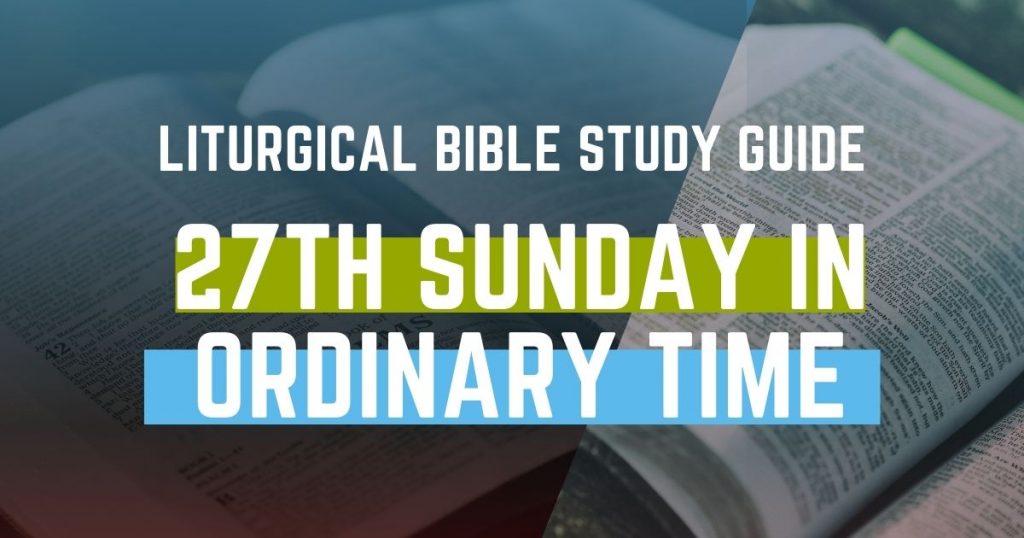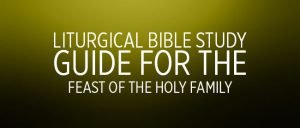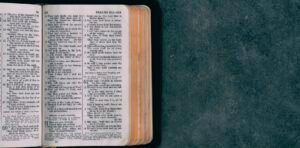1st Reading – Genesis 2:18-24
Some modern scripture scholars speculate that the Pentateuch (the first 5 books of the Bible, The Law/Torah) is a collection of writings from different sources; primarily J (for Yahwehist, 9th century B.C.); E (for Elohist, 8th century B.C.); D (for Deuteronomist, 7th century B.C.); and P (for Priestly, post-exilic) and that this collection was combined in the post exilic period under the guiding hand of the Priestly tradition. For almost 2 millennia, up until the 18th century, the Pentateuch was attributed to Moses as the author by both Jewish and Christian tradition. When reading these books and applying them to the New Testament, it is best to remember that the New Testament authors did not see contradictions in these writings and considered only that Moses was the sole author.
Genesis gives an account of the origin of all created things and acts, as it were, as an elaborate introduction to God’s later revelation to Israel through Moses. Genesis contains the history of Israel’s ancestors, the great patriarchs – Abraham, Isaac, Jacob, Joseph – and is, therefore, the history of a family – Abraham’s – from which the chosen people came. Today we go back to the earliest history.
During the Easter vigil, regardless of whether we are in Cycle A, B, or C, we hear the first creation account from Genesis 1:1 through 2:2. In this account, God creates everything in six days and rests on the seventh. What has been called the second creation account, Genesis 2:4b through 2:25, can also be considered to be an elaboration on Genesis 1:27 “So God created man in his own image, in the image of God he created him; male and female he created them”.
2nd Reading – Hebrews 2:9b-11
Last week we finished our study of the Epistle of James; the epistle which Martin Luther called “the epistle of straw” because it does not support his theory of salvation by faith alone. In leaving this epistle, we now proceed to the Book of Hebrews; another book which Martin Luther tried to eliminate from the Bible.
The identity of the author of Hebrews is unknown. With the exception of 1 John, it is the only New Testament epistle which begins without a greeting mentioning the writer’s name. The earliest known view of its authorship is that of Tertullian (A.D. 160-250) who ascribed it to Barnabas. Its ascription to Paul goes back at least to the end of the second century in the Church of Alexandria.
Hebrews, rather than being a true letter is probably a homily, and was probably written around A.D. 67. Some scholars would like to place the date sometime after A.D. 70, but there are references to the temple in Jerusalem and the worship offered there. The temple was destroyed in A.D. 70 and this would most likely have been mentioned if that event had occurred before this epistle was written.
The target audience is a people who are in all probability converts from Judaism, many of whom may also have been priests or Levites. After becoming Christians, because of the difficult circumstances of the time, they had to abandon Jerusalem, the holy city, and seek refuge elsewhere. In their exile they look back with nostalgia on the splendor of the cult they played a part in prior to their conversion.
They feel deceived and are tempted to give up their new faith, in which they are not yet well grounded. In addition to this they are discontented by the persecution they suffer because of their new faith. Obviously, they are in need of help, and in particular, of clear doctrine to bolster their faith and enable them to cope with temptation to infidelity.
Today’s reading talks about Jesus’ exaltation (honor, status) through abasement (lowering in rank).
Gospel – Mark 10:2-16
We continue, for the third week to study Jesus’ second instruction to His apostles on His mission and their discipleship. Having revealed Himself as the Messiah, He is now giving them a crash course in Christology and Discipleship. This teaching is yet another challenge to those who wish to follow Him. Verse 1 tells us that Jesus has now left Galilee and is in Judea.





